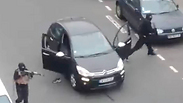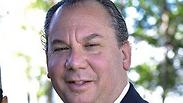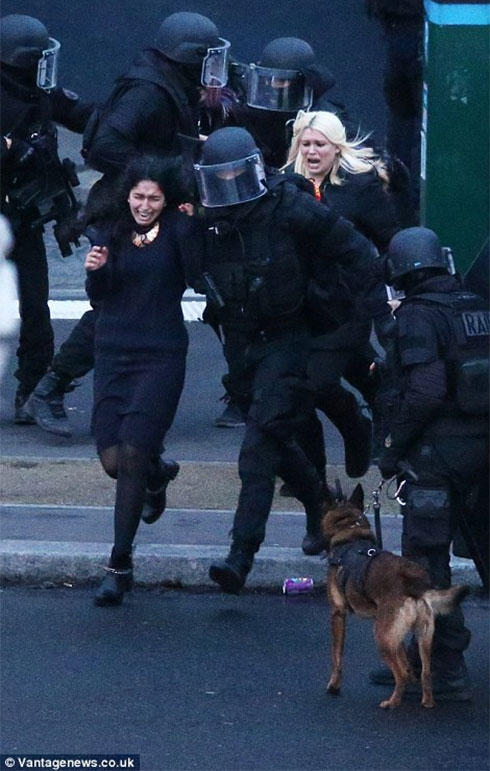

Why don’t Muslim leaders speak out?
That question comes up every time terrorists purporting to be deeply religious Muslims carry out armed attacks that kill innocent people. Where, commentators ask, are the moderate Muslim leaders and why aren’t they decrying the horrors perpetuated by fellow Muslims?
In fact, mainstream Muslims are speaking out, clearly and consistently. Leaders around the world, many of whom I know personally through my work at the Foundation for Ethnic Understanding, have issued strong and unambiguous statements virtually every time a violent attack has occurred, condemning such acts as immoral and counter to the fundamental precepts of Islam.
Yet somehow their responses are not being heard, barely registering in the public consciousness.
As I write these lines, hundreds of thousands of people from all religious and ethnic backgrounds and from all walks of life are marching together through the streets of Paris to declare their horror at the murderous Islamist extremist terrorist attacks last week that killed 17 innocent people at the offices of Charlie Hebdo and the Hyper Casher supermarket.
Among the throngs is a joint Muslim-Jewish delegation organized by the Foundation for Ethnic Understanding that includes leading imams and rabbis, as well as Muslim and Jewish young leadership activists; not only from France, but Britain, Italy, Germany, Norway and other countries as well. Members of the delegation are expressing two messages; an unequivocal denunciation of the killings and the perverted ideology that spawned the violence; and a commitment to standing together as Muslims and Jews and declaring, ‘We refuse to be enemies.’
In the days immediately following the massacres at Charlie Hebdo and the Hyper Casher, all of the major French Muslim organizations expressed unambiguous, passionate and often quite eloquent denunciations of the attacks; not only condemning the wanton killings carried out by the attackers as counter to the values of Islam, but also explicitly defending freedom of expression; even when such speech is offensive to Islam and Muslims.
The largest and most influential of these organizations, the French Council of the Muslim Faith, put the issue at stake in sharp relief by not only denouncing the murderous attack, but specifying, “This extremely grave barbaric act is also an attack against democracy and freedom of the press.”

Dalil Boubakeur, Rector of the Great Mosque of Paris and chair of CFCM, told a press conference that the attack on Carlie Hebdo was “a deafening declaration of war” against freedom of speech, declaring, “I am extremely attached to freedom of the press even if the press is not always tender toward Muslims, Islam or the Paris Mosque.”
For his part, Imam Ahmed Miktar, President of the Imams of France, commented “We join with all of our fellow citizens in opposition to these barbaric acts which target the foundations of democracy to which all of us are attached, and which are of equal and direct concern to the Muslim citizens of France.”
In other countries where Islamist extremists have carried out violent attacks against innocents in recent weeks, the response of mainstream Muslims has been equally forthright.
For example, even as a deranged Islamist gunman was hunkered down with hostages in a café in Sydney, Australia last December 15; an attack that would ultimately leave two hostages dead together with the gunmen, Grand Mufti Ibrahim Abu Mohamed, the country’s highest Islamic office holder, said he felt devastated by the attack, commenting: "The Grand Mufti and the Australian National Imams Council condemn this criminal act unequivocally and reiterate that such actions are denounced in part and in whole in Islam."
Meanwhile, the horrific mass murder of 145 people, the majority of them schoolchildren by the Pakistani Taliban in the city of Peshawar two days after the Sydney attack, was met with near universal revulsion across the Islamic world. Dr. Zaruful Islam Khan, President of the All India Muslim Majlise Mushawarat, termed the attack “a blot in the face of Islam,” adding, “We don’t have words to condemn such barbaric act and savagery … There is no justification of killing of innocent children. It has nothing to do with humanity, leave aside Islam.”
In the US, the Islamic Society of North America repeatedly speaks out against extremism of all kinds and was among the first Muslim organizations to denounce Boko Haram. Another important American Muslim organization, the Muslim Public Affairs Council (MPAC), has been outspoken ardent not only in condemning terrorism, but in denouncing the trend toward extremism and totalitarianism within the Muslim world, which manifested itself last year most prominently in the rise of ISIS in Syria and Iraq.
During the summer of 2014, the war between Israel and Hamas in Gaza triggered an explosion of violent anti-Semitism across Europe; including many acts committed by Muslims. While the media highlighted the very real and deeply troubling upsurge of violence in countries like France, Germany and Belgium, they rarely reported on Muslim leaders who denounced the violence.
For example, after riots by a predominantly Muslim crowd in the Paris suburb of Sarcelles attacked a synagogue and Jewish businesses, the local Muslim Association sent a letter of solidarity and support to the vice president of the synagogue. National Muslim leaders took part in an interfaith ceremony that denounced the violence and called for reconciliation. Boubakeur, who attended the ceremony, affirmed that the vast majority of French Muslims are not anti-Semitic. How could they be, he asked, when they themselves are battling racism?
Those responses should all have been part of the story. But too often, Islam is not only portrayed negatively, but falsely, as a monolithic entity. As a result, the general public often fails to grasp that there is a diversity of opinion within Islam and that most Muslims condemn extremism and violence.
Yes, Islamist extremism is a genuine threat to world peace. But those who lump all Muslims together, and dismiss as meaningless the courageous stand of the moderate majority against extremism, aren’t helping to win that battle. Rather, they’re strengthening extremism by perpetuating a false narrative of perpetual conflict between Islam and the West. That is something which we must fight with all our might.
Rabbi Marc Schneier is president of the Foundation for Ethnic Understanding and chair of the Gathering of European Muslim and Jewish Leaders (GEMJL).















